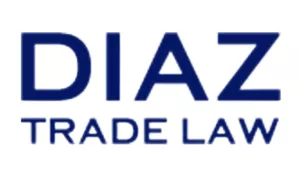- with Senior Company Executives and HR
This week, three courts weighed in on President Trump's imposition of tariffs through the International Emergency Economic Powers Act (IEEPA).
Court of International Trade (CIT)
On May 28, 2025, the CIT ruled against President Trump's imposition of worldwide tariffs through IEEPA. The CIT Opinion covers both the IEEPA Reciprocal Tariff, which was invoked on April 2 on global imports, and the IEEPA Fentanyl Tariff, which President Trump ordered earlier on Canada, Mexico, and China.
The CIT found that the power to "regulate importation" does not authorize the President to "impose whatever tariff rates he deems desirable." Further, the CIT also found that unlimited delegation of tariff power from Congress to the President is unconstitutional under the nondelegation and major questions doctrine.
Along with the decision, the CIT issued an order that the IEEPA tariffs be revoked and that the government has 10 calendar days (until June 7) to effectuate the order.
Court of Appeals for the Federal Circuit (CAFC)
In response to the CIT ruling, the Government filed an appeal to the Court of Appeals for the Federal Circuit (CAFC) and a motion to stay the CIT order for at least 7 days to allow the CAFC to consider their appeal.
In its motion, the Government argued that the CIT's decision is rife with legal error and disarms the U.S. "in the face of the longstanding predatory trade practices of other countries."
On May 29, 2025, the CAFC granted the Government's request to stay the CIT order.
The District Court for the District of Columbia
In a separate case challenging the President's authority to issue tariffs under IEEPA, the District Court for the District of Colombia struck down all tariff action taken under IEEPA. The Judge in the DC court went farther than the CIT, holding that IEEPA does not include the power to impose tariffs.
The judge denied the government's motion to transfer the case to the CIT, and preliminarily enjoined the collection of the tariffs, but only from the plaintiffs in the case (two importers).
The judge stayed the injunction for 14 days to give the government a chance to appeal to the U.S. Court of Appeals for the D.C. Circuit.
Next Steps
The Administration is considering a stopgap effort to impose tariffs under a provision of the Trade Act of 1974, which allows the imposition of tariffs of up to 15% for 150 days to address trade imbalances with other countries.
The interim measure would allow the Administration time to reinstate the tariffs through the Trade Act to counter unfair foreign trade practices. This approach requires an administrative notice and comment procedure, but has been successfully utilized to impose tariffs in the past, including during Trump's first presidency.
Impact
The rulings above do not invalidate or otherwise impact tariffs implemented by President Trump under Section 301 of the Trade Act of 1974 and under Section 232 of the Trade Adjustment Act of 1962.
Major questions remain regarding how the government will respond to the court rulings, particularly with respect to tariff refunds. Both before CIT and CAFC, the government argued that stay wouldn't harm the plaintiffs, since "the government will issue refunds to plaintiffs, including any post-judgment interest that accrues," if the court leaves the tariffs in place while the appeal is pending."
These cases are two of many making their way through the court system. The questions surrounding the President's legal authority to impose tariffs will likely not be answered for many more months or years. In the meantime, importers should continue to focus on tariff mitigation strategies and compliance.
Diaz Trade Law will continue to monitor this case and others for updates.
The content of this article is intended to provide a general guide to the subject matter. Specialist advice should be sought about your specific circumstances.


